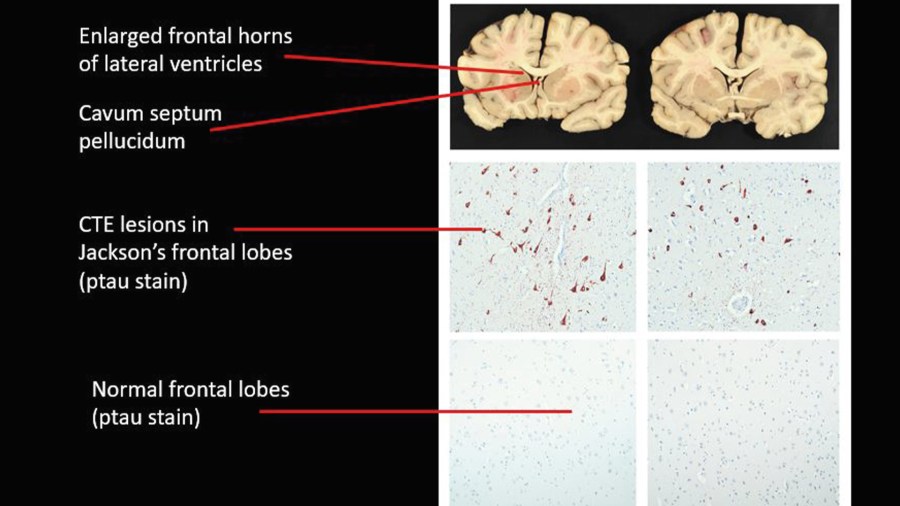TAMPA, Fla. (WFLA) — Vincent Jackson, the former Bucs and Chargers wide receiver who was found dead in a Brandon hotel room in February was suffering from a degenerative brain disease caused by repetitive head trauma, his family said on Thursday.
Jackson’s family said in a press release that he had chronic traumatic encephalopathy or (CTE), a rare disorder that’s been found in the brains of some athletes who play contact sports and suffer head injuries.
The disorder isn’t well understood, and can only be diagnosed through an autopsy since it requires evidence of brain tissue degeneration.
Boston Unniveristy researchers said Jackson had stage 2 CTE, like most NFL players who’ve been diagnosed with the disease after dying in their 20s and 30s.
Signs and symptoms can include aggression, impulsivity, explosivity, depression, paranoia, anxiety, poor executive function and memory loss.
Stage 4 is the most severe, and is usually associated with dementia.

“Vincent Jackson was a brilliant, disciplined, gentle giant whose life began to change in his mid-30s. He became depressed, with progressive memory loss, problem solving difficulties, paranoia, and eventually extreme social isolation. It’s extremely tough to deal with. I think one thing that came out in this particular instance is that he didn’t know he was suffering from it and neither did his wife. They just thought he was behaving badly.” said Dr. Ann McKee, chief of neuropathology for the VA Boston Healthcare System and director of the BU CTE Center and VA-BU-CLF Brain Bank. “That his brain showed stage 2 CTE should no longer surprise us; these results have become commonplace. What is surprising is that so many football players have died with CTE and so little is being done to make football, at all levels, safer by limiting the number of repetitive subconcussive hits. CTE will not disappear by ignoring it, we need to actively address the risk that football poses to brain health and to support the players who are struggling.”
Jackson played 23 years of tackle football, beginning at age 12. He played for 12 seasons in the NFL with the Buccaneers and Chargers, going to three Pro Bowls before retiring in 2018. He was nominated for the Walter Payton Man of the Year award four of the five years he was with the Bucs.
On Feb. 15, a housekeeper found Jackson’s body at the Homewood Suites, 10240 Palm River Road in Brandon. There were no signs of trauma, deputies said. He was 38.
“Vincent dedicated so much of his life to helping others. Even in his passing, I know he would want to continue that same legacy,” said Lindsey Jackson, Vincent’s widow. “By donating his brain to the VA-BU-CLF Brain Bank, we hope to continue to see advancements in CTE research, enabling physicians to diagnose the disease in the living and ultimately find treatment options in the future. There is still a lot to be understood about CTE, and education is the key to prevention. The conversation around this topic needs to be more prevalent, and our family hopes that others will feel comfortable and supported when talking about CTE moving forward.”
Former Buccaneer and Tampa resident Mark Robinson said he hopes the results encourage other players to take CTE seriously and stay on top of their health.
“Right now we’re falling a little short in some areas. I think that we need to continue pushing and be proactive about it, work together. It’s a team sport,” said Robinson. “The NFL they offer programs but players don’t access them. When you’re playing, a lot of things, if you access them when you’re playing, you feel like you’re going to get cut. And it happens. People get injured, things happen. So I think raising awareness on the NFL level, raising awareness on the player level, from the players to administration, that’s a big difference.”

